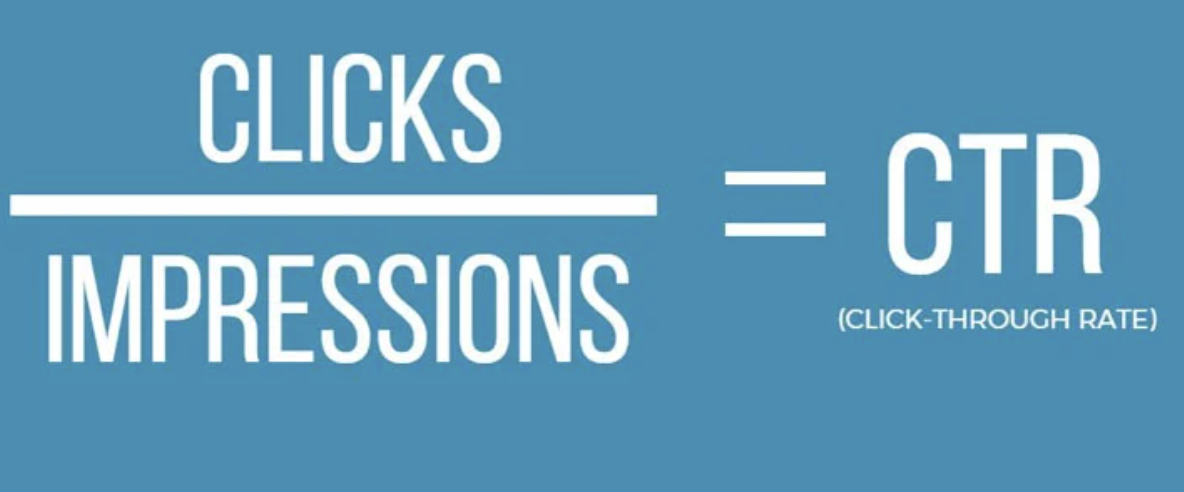Discover the Perks of Using a Professional CTR Manipulation Service
Discover the Perks of Using a Professional CTR Manipulation Service
Blog Article
Elevate Your Organic Search Rankings With CTR Manipulation
The relationship in between click-through rate (CTR) and organic search positions is increasingly significant in today's digital landscape. By strategically manipulating CTR through maximized title tags and engaging meta descriptions, businesses can enhance their visibility and attract even more individuals.
Comprehending CTR and Its Significance
Understanding Click-Through Rate (CTR) is vital for anyone looking to boost their natural search rankings. CTR is the statistics that determines the portion of users that click a search engine result contrasted to the total number of users that saw that outcome. A greater CTR indicates that a webpage is enticing and pertinent to individuals, which can bring about boosted presence in online search engine results pages (SERPs)

To take advantage of CTR, it is essential to constantly analyze and maximize your material strategies. Methods such as A/B testing for headings and meta descriptions, in addition to understanding customer behavior, can dramatically affect your CTR. Inevitably, enhancing CTR is a critical method to driving natural traffic and enhancing total search visibility.
Exactly How Internet Search Engine Use CTR
Online search engine leverage Click-Through Rate (CTR) as a significant aspect in evaluating the relevance and top quality of search results. CTR is the proportion of users who click a search engine result to the total number of users who check out the search engine result web page. A greater CTR suggests that individuals find a specific web link pertinent and engaging, signaling to internet search engine that the web content is useful and worth promoting.
Online search engine continually analyze CTR information to improve their formulas and improve customer experience. When a specific result constantly draws in clicks, it might be rewarded with higher positions, as this behavior suggests that the material effectively fulfills user intent. Alternatively, low CTR for an outcome can indicate an absence of importance, triggering search engines to reduce its position.
Additionally, CTR can vary based upon elements such as the kind of web content showed, the setting of the web link, and the nature of the question. Recognizing these dynamics allows online search engine to customize results better, boosting the chance that users will discover what they are browsing for. Eventually, CTR acts as an important metric that informs search engines regarding individual preferences, guiding them in delivering one of the most relevant results.
Techniques for Effective CTR Manipulation
Regularly utilizing particular methods can considerably improve Click-Through Fees (CTR) for organic search results page. One efficient method is to optimize title tags and meta summaries. Crafting compelling, clear, and succinct titles that incorporate key search phrases can attract customer focus, while influential meta summaries can supply a succinct recap of the web content, luring clicks.
Another strategy involves utilizing rich fragments, which enhance search listings with added aesthetic aspects such as scores, images, or item schedule. These functions can distinguish your listing from rivals, prompting boosted engagement.
Additionally, leveraging emotional triggers in your web content can inspire users to click. Wording that stimulates urgency, exclusivity, or curiosity often leads to greater CTRs. For example, titles that position intriguing concerns or offer solutions to common troubles can be especially effective.
Finally, consider A/B screening various headlines and summaries to determine which combinations generate the highest CTR. This data-driven strategy permits continuous refinement of your strategies, inevitably improving your organic search performance. By executing these techniques, you can create a more engaging and enticing visibility in search results page, consequently improving your general CTR.
Determining Your CTR Impact
Reviewing the effect of your CTR adjustment efforts is critical for optimizing organic search efficiency. To efficiently determine this influence, begin by using analytics devices that track organic search web traffic and individual involvement metrics. Google Search Console is a useful resource, supplying understandings right into click-through prices for specific key phrases and web pages, allowing you to determine which approaches generate the ideal outcomes.
It's necessary to establish a standard CTR prior to carrying out any kind of adjustment techniques. This my review here allows you to compare efficiency with time and assess the effectiveness of your initiatives. Surveillance adjustments in natural web traffic, bounce rates, and conversion prices in combination with CTR data will certainly supply a detailed understanding of individual behavior arising from your techniques.
A/B screening can likewise be helpful; by producing variations of meta titles and summaries, you can determine which combinations lead to greater CTRs. Documenting these metrics over time will certainly help with trend evaluation, allowing you to improve your strategy constantly. Ultimately, a methodical evaluation of CTR impact will certainly empower you to make data-driven choices, making certain that your natural search positions are constantly elevated and aligned with your total electronic advertising and marketing goals.
Honest Considerations in CTR Strategies
When implementing CTR manipulation approaches, it is imperative to take Our site into consideration the honest implications of such techniques. While improving click-through rates is a reputable objective for enhancing organic search rankings, the methods utilized must line up with ethical criteria. Misleading individuals via misleading methods, such as clickbait titles that do not deliver on their assurances, can deteriorate count on and damages brand name reputation.
Additionally, participating in practices that synthetically blow up CTR, such as using bots or incentivizing clicks, elevates inquiries regarding the stability of the information being presented to browse engines. Look engines focus on real customer involvement, and manipulating CTR can result in charges, causing lessened presence and credibility.
Transparency and honesty ought to be at the forefront of any kind of CTR technique. Inevitably, balancing reliable CTR strategies with ethical considerations is vital for preserving both brand stability and individual depend on in a progressively affordable digital landscape.
Final Thought
In verdict, effectively controling click-through rates (CTR) serves as a vital strategy for improving natural search rankings. By maximizing title tags and meta summaries, using rich snippets, and official website appealing users emotionally, websites can significantly improve their visibility in search outcomes.
CTR is the metric that measures the percent of individuals who click on a search engine result contrasted to the overall number of individuals who viewed that outcome. A higher CTR shows that a webpage is attractive and pertinent to individuals, which can lead to enhanced presence in search engine results web pages (SERPs)

Report this page